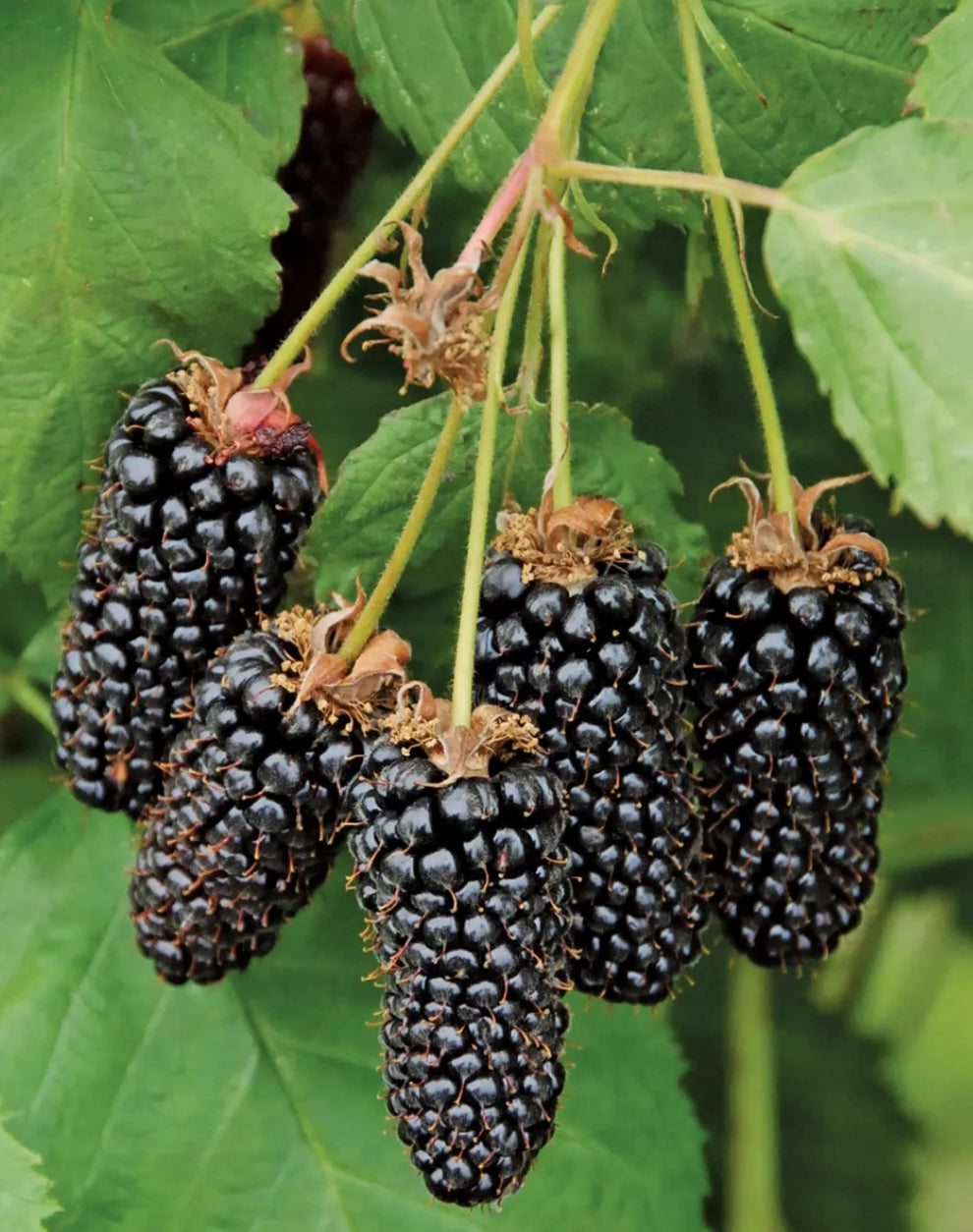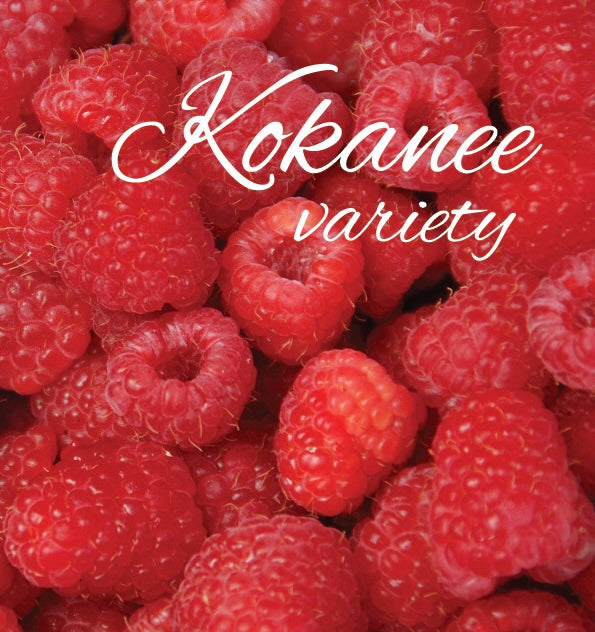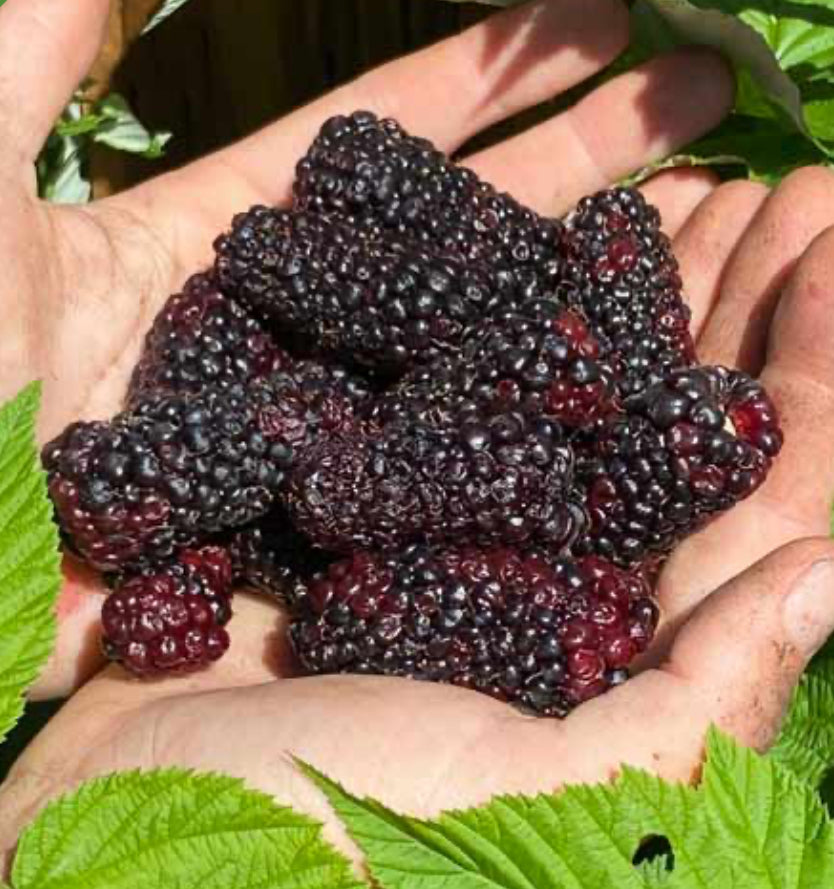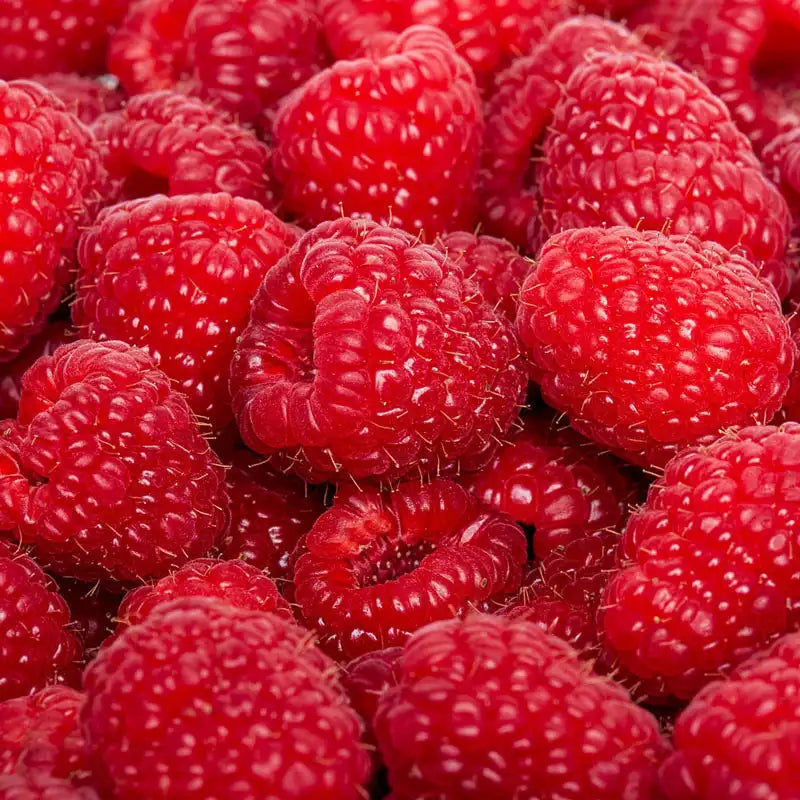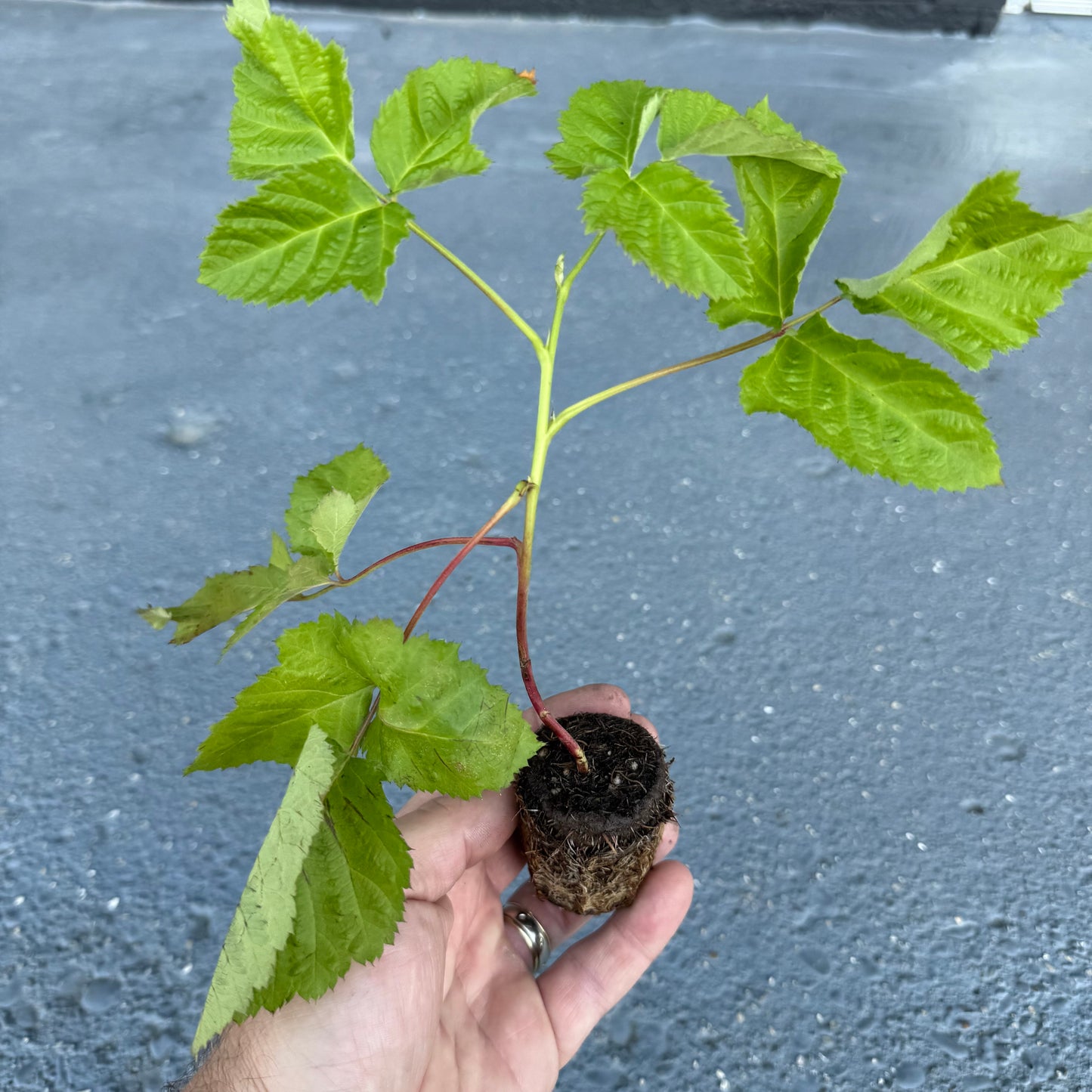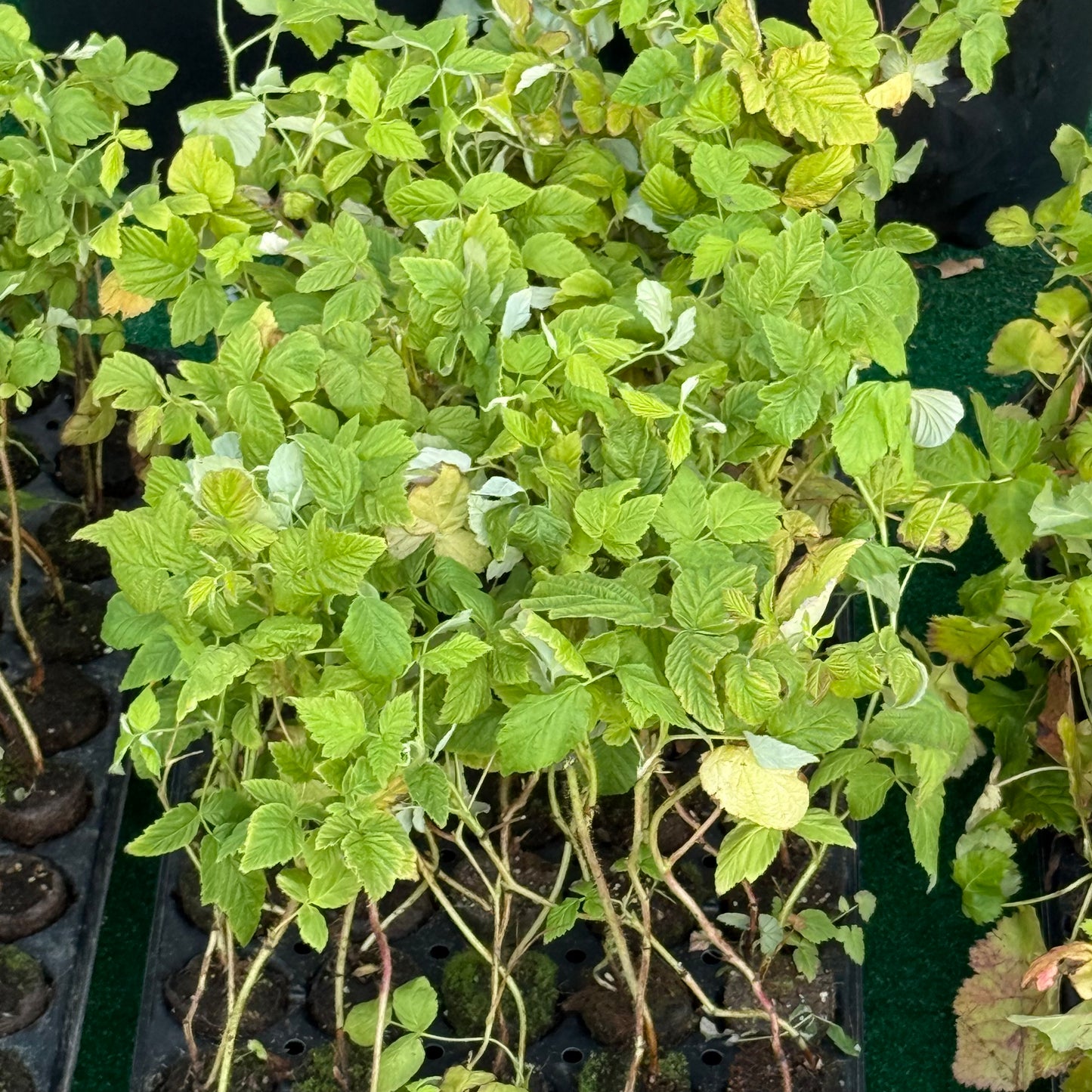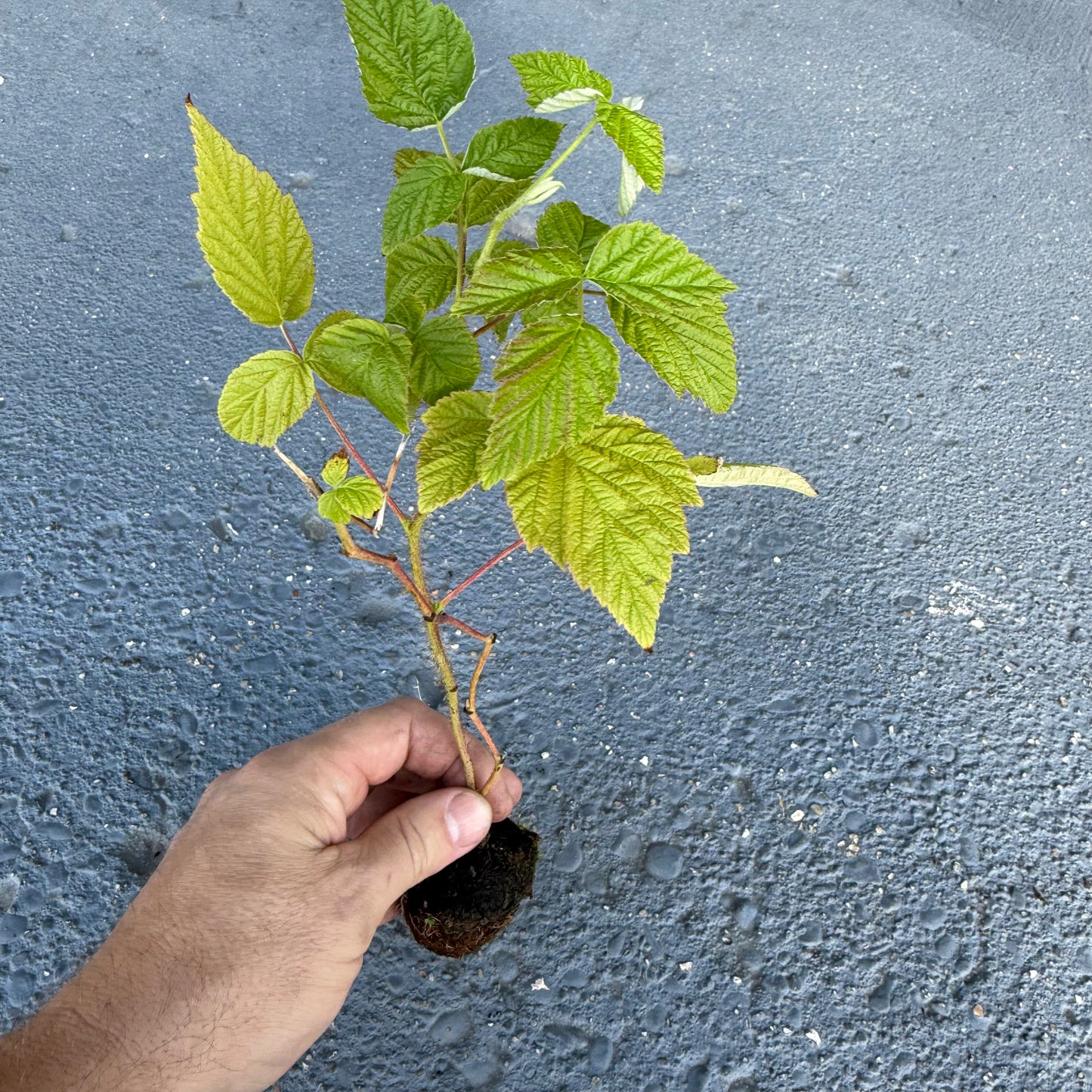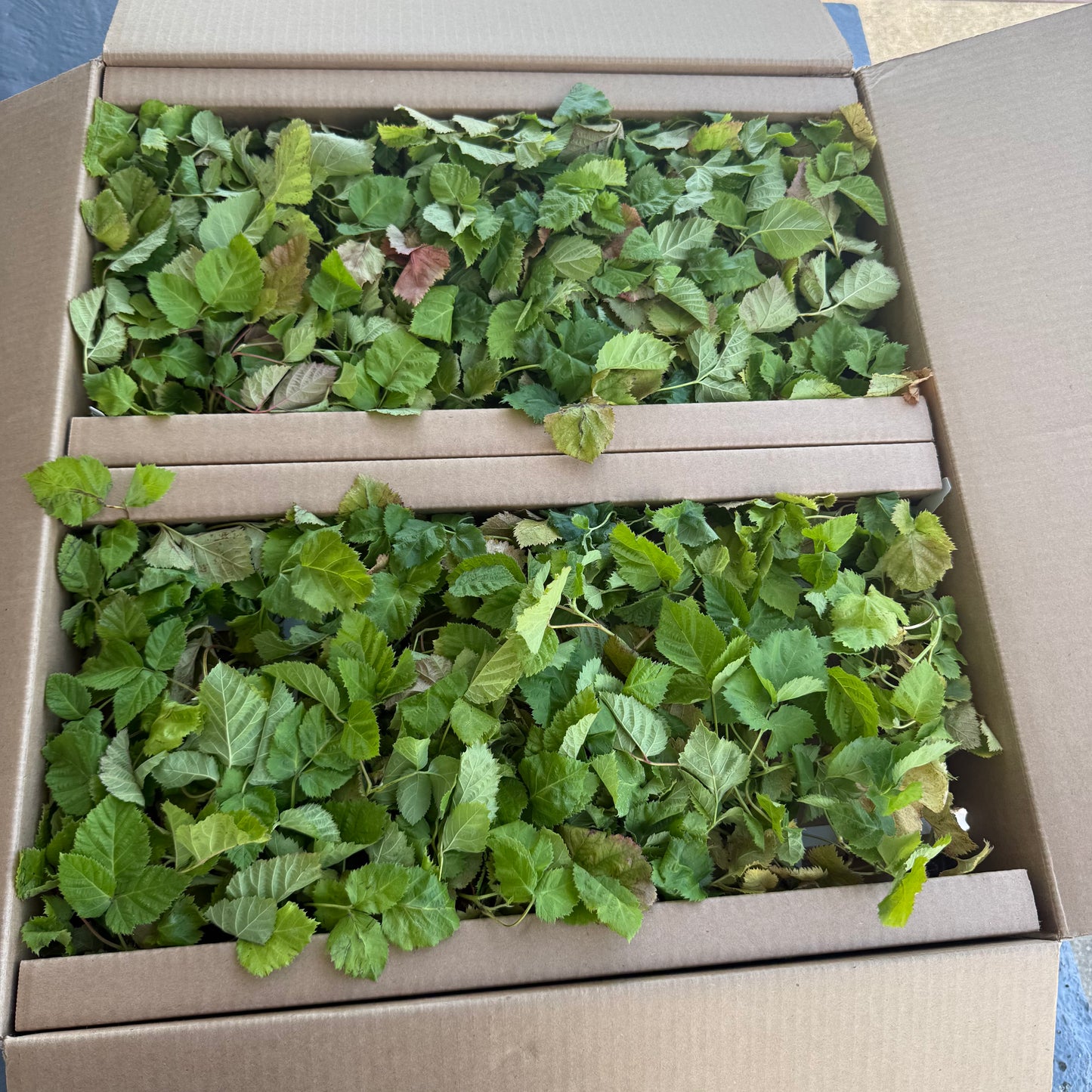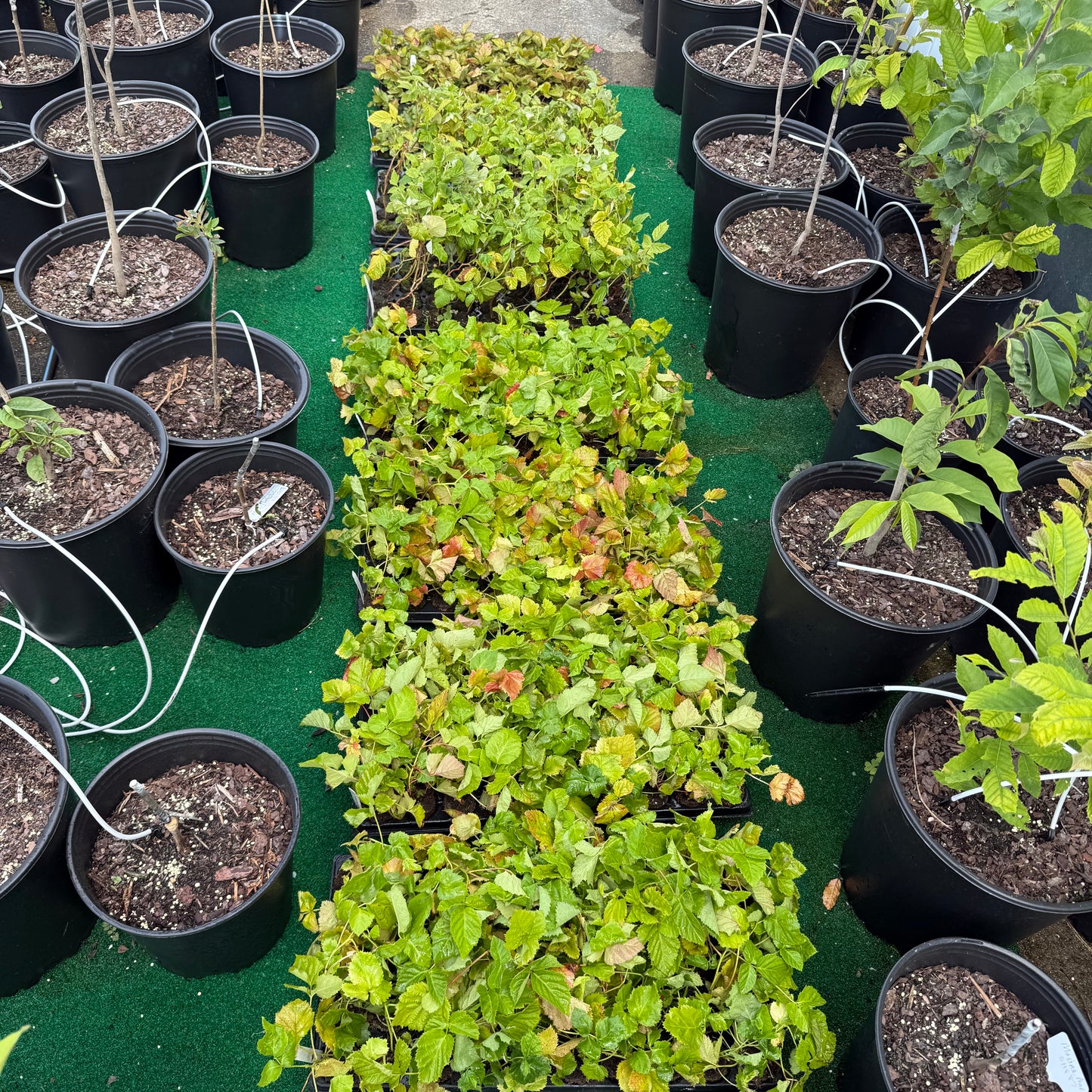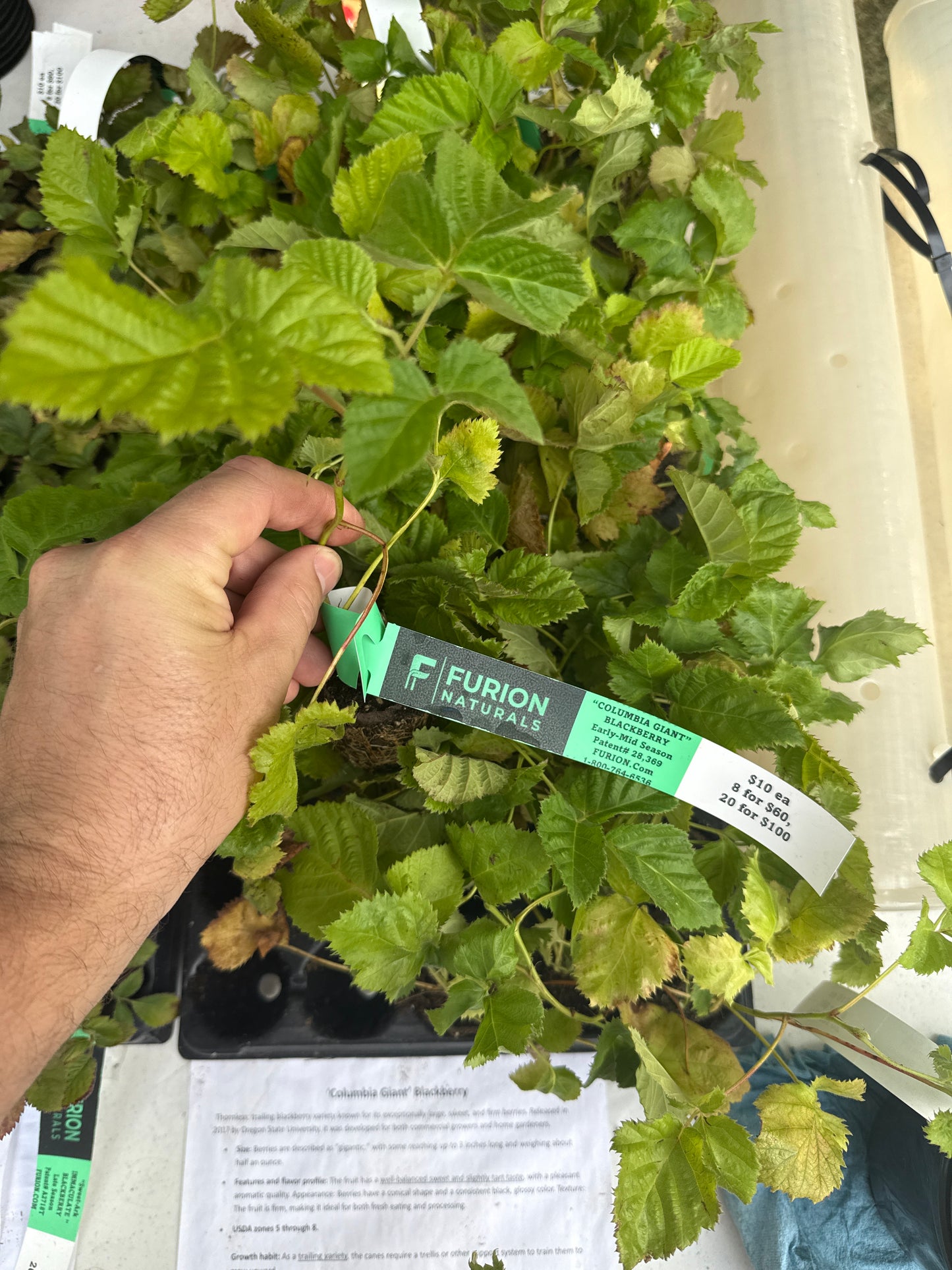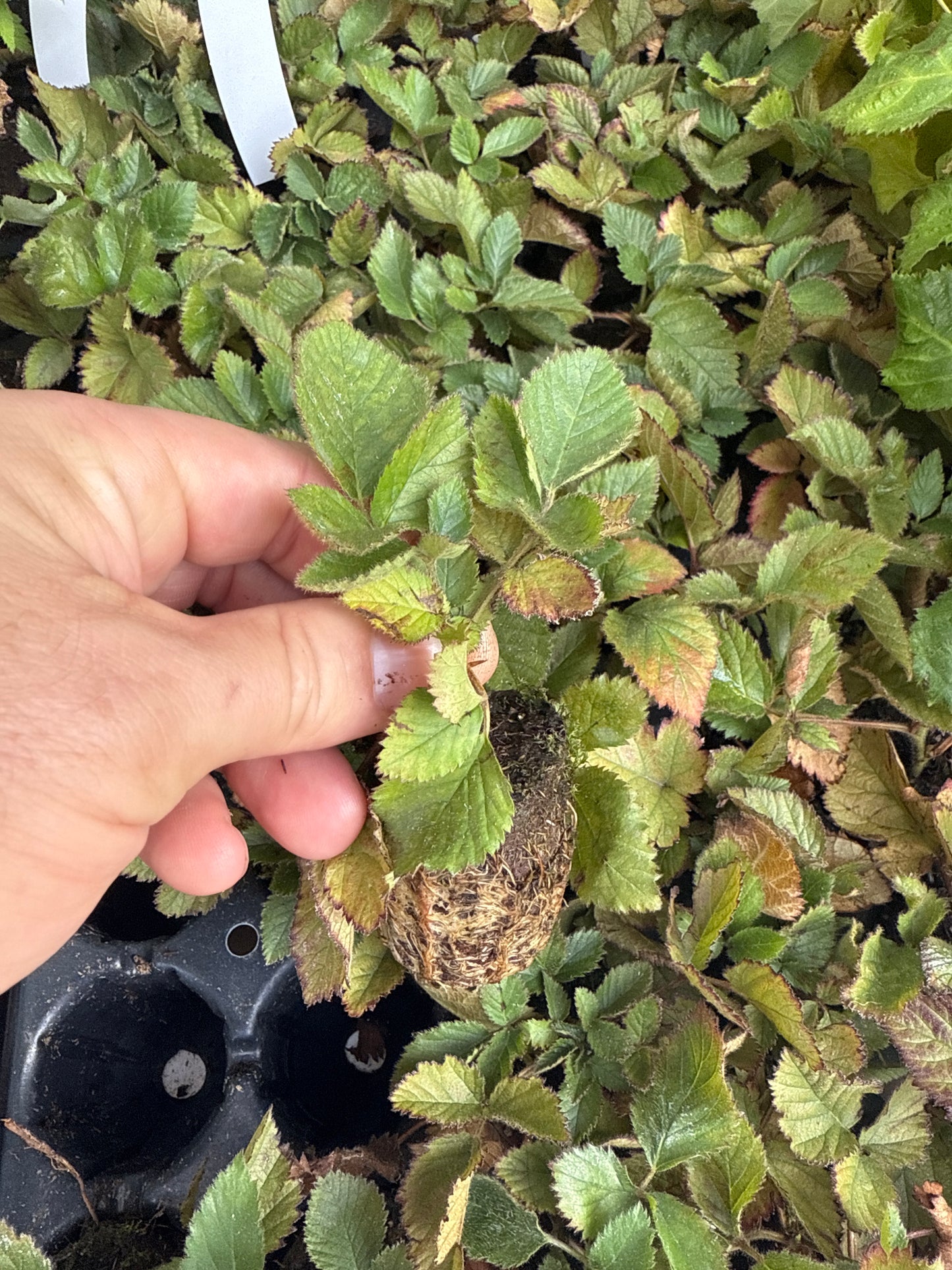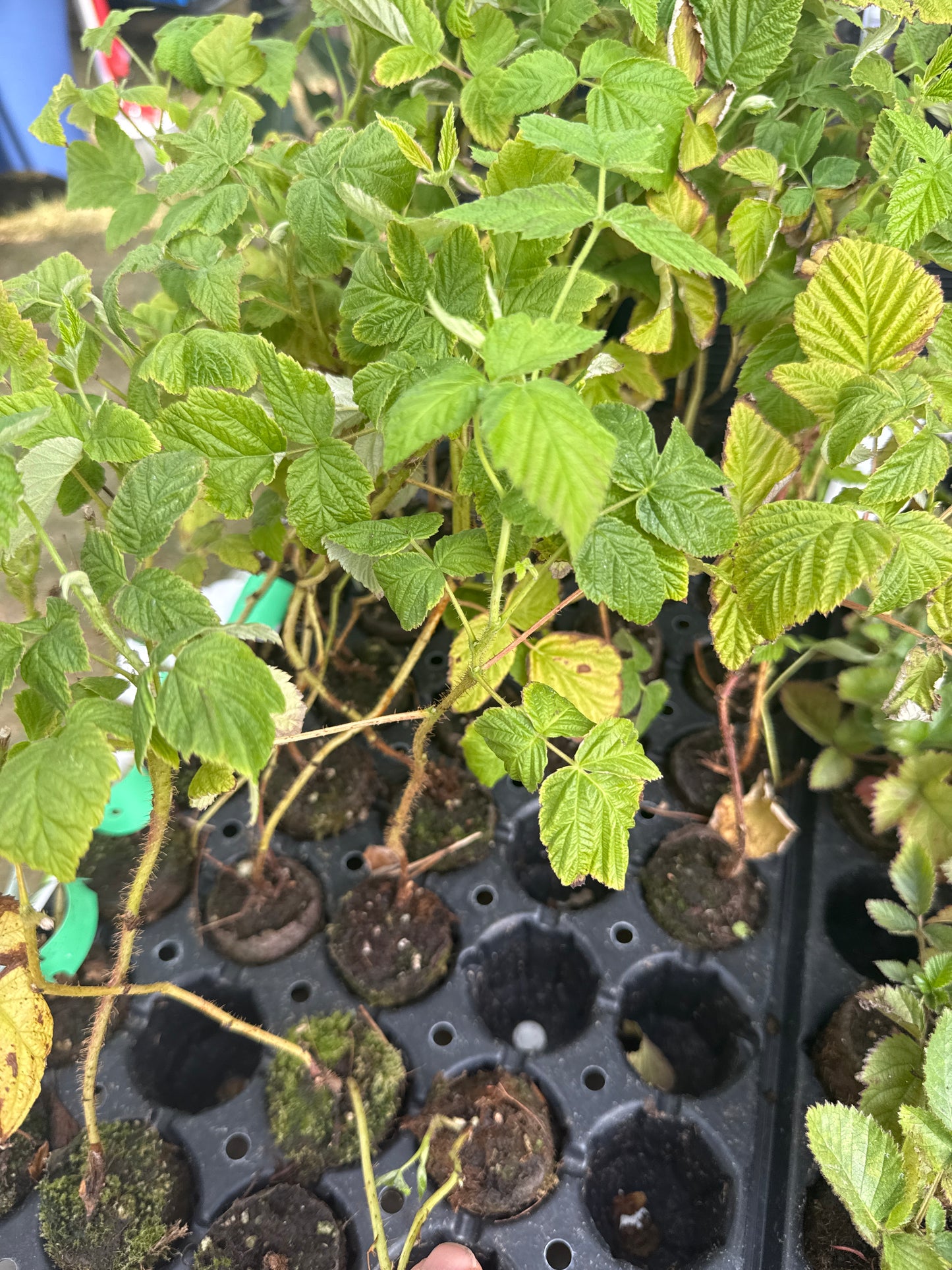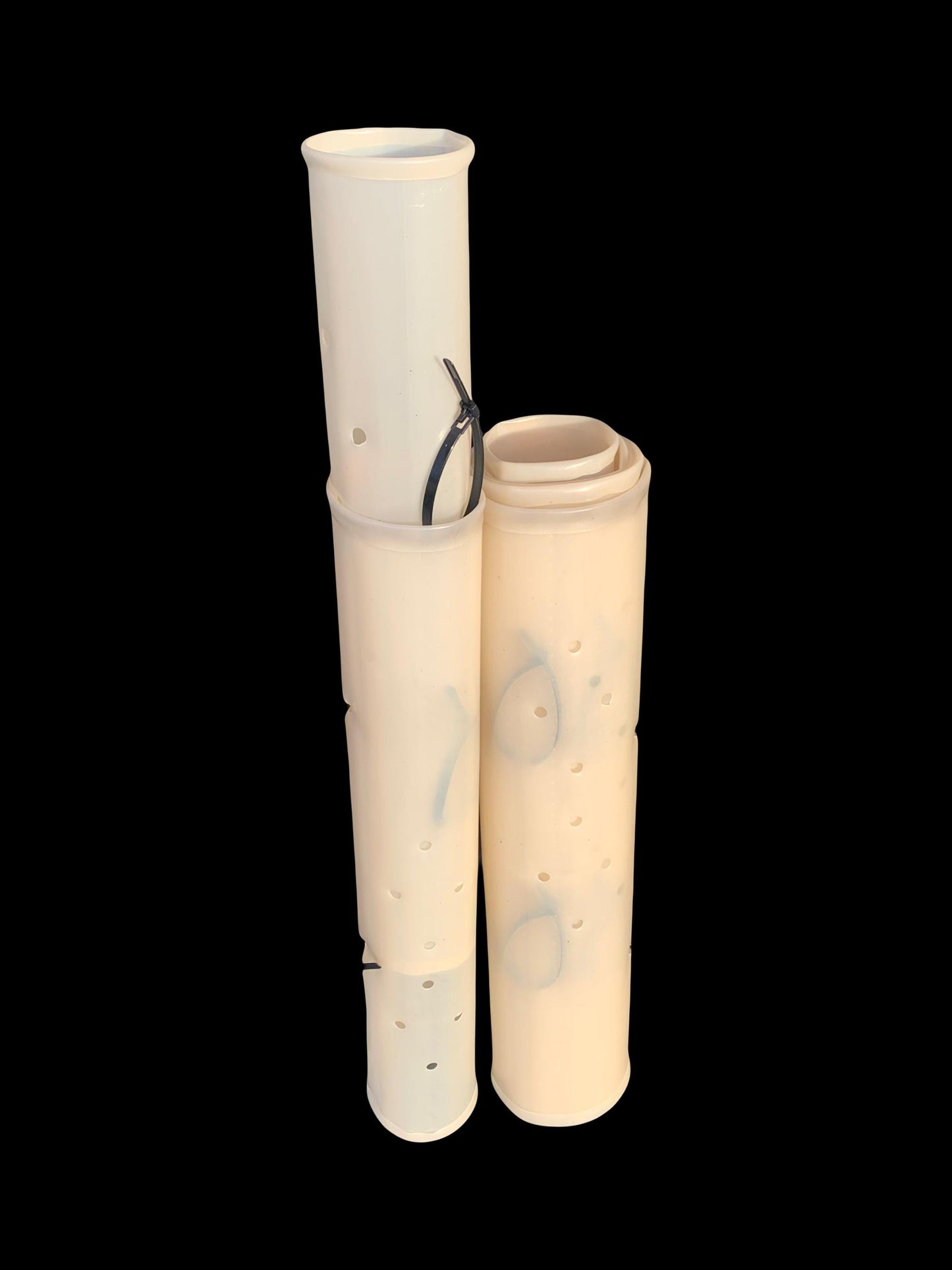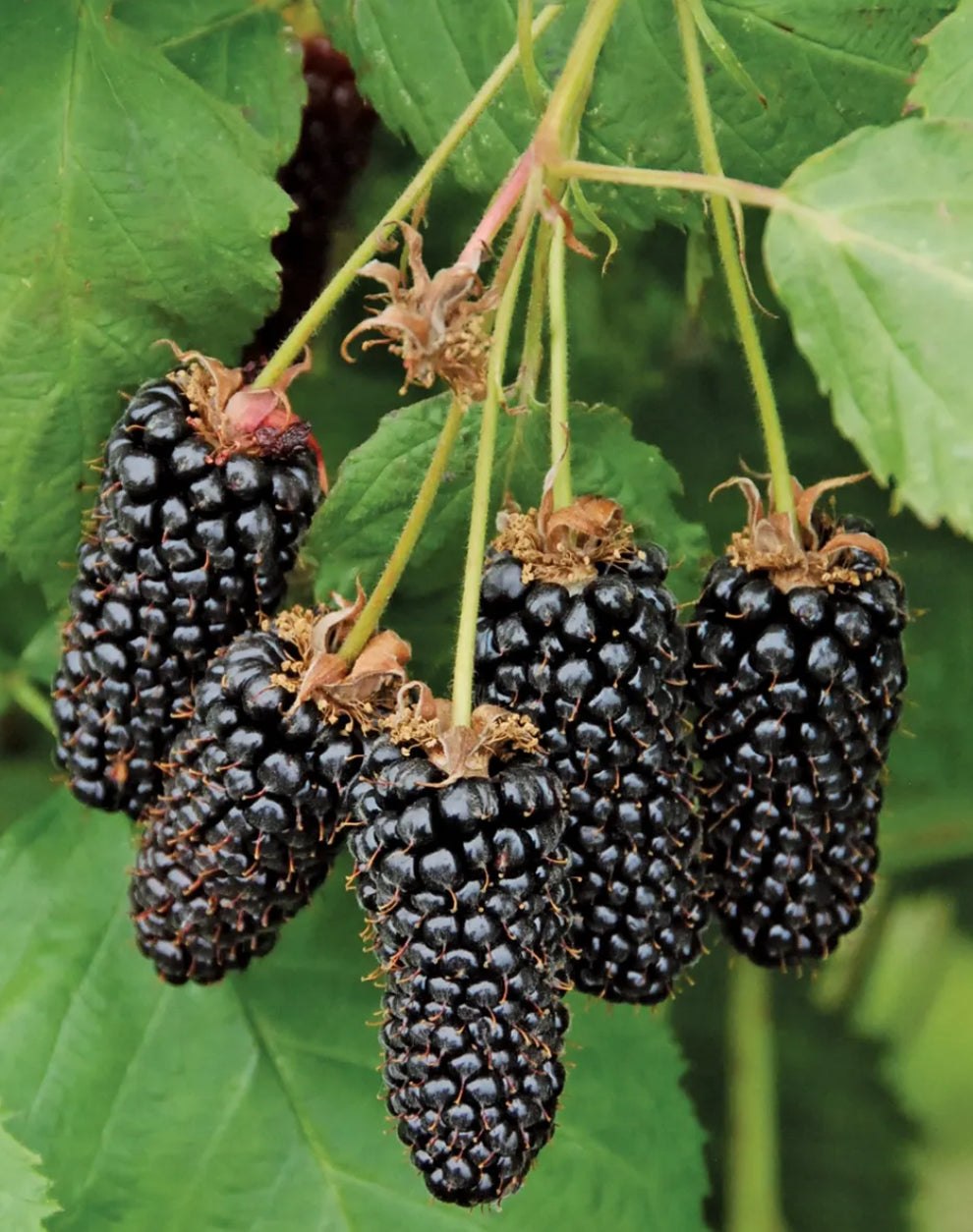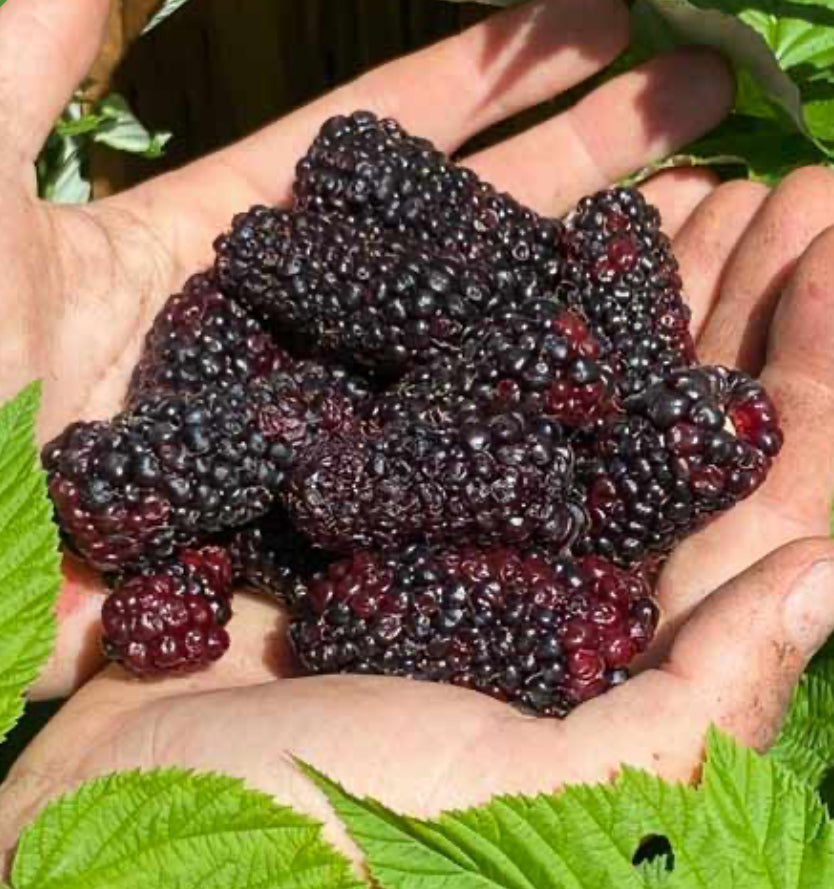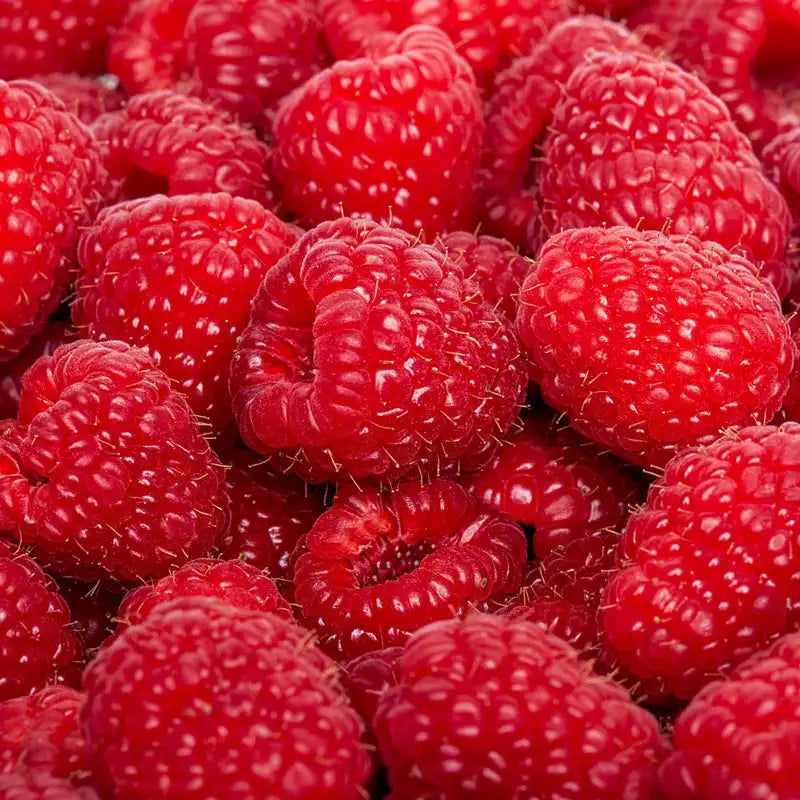Patented Thornless BlackBerry & Raspberry Starter Plant (Plugs)- with Free 24" Greenhouse Miracle Grow Tube
Patented Thornless BlackBerry & Raspberry Starter Plant (Plugs)- with Free 24" Greenhouse Miracle Grow Tube
Share the love with friends!
Impossible de charger la disponibilité du service de retrait
Columbia Giant®- Blackberry
New Patented Variety, Patent# USPP28369P3
Thornless high-yielding blackberry variety known for producing exceptionally large, firm, and flavorful fruit. Developed by the USDA and Oregon State University, it is a trailing floricane berry that has excellent disease and heat resistance.
· Thornless: Offers cultivation advantages.
· Size: Berries are described as "gigantic," with some reaching up to 3 inches long and weighing about half an ounce.
- Flavor: Offers a well-balanced flavor with both sweetness and a touch of tartness. Its balanced flavor profile is excellent for fresh eating, while its firm texture makes it suitable for commercial processing into jams, jellies, and other products
· Quality: The berries are firm and juicy. They are attractive and glossy appearance.
- High Yield Potential: 12.98 lbs per plant (1089 plants per acre, 4 ft between plants and 10 ft rows), for 14, 135 lbs per acre. (5.9 kg per plant, which can be converted to around 13,000 to 15,000 pounds per acre)
- Harvest time: It is an early- to mid-season berry, with a harvest typically from late June to the end of July. The berries ripen over a period of several weeks, and you can tell they are ripe when they detach from the stem with a slight twist.
- Hardiness Zones: USDA Zones: The plant can be grown outdoors year-round within zones 5 to 9. Some nursery sources state a tolerance down to -10°F to -20°F. However, the most consistent reports indicate it can survive cold down to at least -10°F (-23°C). Chill Hours: For best fruit production, this variety requires between 500 and 800 chill hours, a period of cold dormancy needed for proper bud development.
- Spacing: 4-6 ft between plants and 10 ft between rows (or less between rows, with small mowers and no commercial tractor use)
- Growth Habit: The Columbia Giant has semi-erect, vigorous canes that are thornless.
Disease and pest resistant: Known for its high resistance to common diseases and pests.
Sweet-Ark® Immaculate- Blackberry
New Patented Variety, Patent# A-2718T
Thornless blackberry cultivar developed and released by the University of Arkansas.
Known for producing exceptionally large, firm, and very sweet blackberries, this variety is an excellent choice for both commercial growers and home gardeners due to its superior post-harvest quality and high yield potential.
- Thornless: Offers cultivation advantages.
- High Yield Potential: 13.77-24.79 lbs per plant (1089 plants per acre, 4 ft between plants and 10 ft rows), for 15,000-27,000 lbs per acre.
- Harvest Time: Late-Season ripens later in the season, after the Ouachita variety.
- Storage: Firm Berries, maintain firmness during storage, reducing spoilage.
- Medium to Large Berries: Berries are a good size for commercial packaging.
- Reduced Reversion: Less prone to the issue of berries turning red after picking.
- Hardiness Zones: Grows well in Zones 5 through 9, indicating it can tolerate minimum winter temperatures in this range. Breeding: A release from the University of Arkansas Fruit Breeding Program. Benefits: Offers improved berry quality, high yields, and good post-harvest performance for extended shelf life.
- Spacing: 4-6 ft between plants and 10 ft between rows (or less between rows, with small mowers and no commercial tractor use)
Key Characteristics
Sweet-Ark® Immaculate is a new, late-season, floricane-fruiting, thornless blackberry variety. This new variety has good yield potential comparable to Osage and Sweet-Ark® Caddo. Berries are medium-large and very firm, with postharvest potential similar to Ouachita and Sweet-Ark®Caddo and slightly superior to Osage and Sweet-Ark® Ponca. Fruit of Sweet-Ark® Immaculate is expected to perform comparably to other Arkansas blackberry cultivars for storage and shipping. In Arkansas, the first harvest date is June 26, 11-12 days after Osage and Sweet-Ark® Caddo. Sweet-Ark® Immaculate is intended to be a complement to Navaho and Von in late season fresh market blackberry production
Kokanee® - Raspberry
New Patented Variety, Patent# USPP28,666
Nearly Thornless and High yielding raspberry cultivar developed by Dr. Chad Finn, plant breeder of the US Department of Agriculture
Ripens 10 to 14 days earlier than the Heritage variety. Primocane fruiting, Excellent flavor across a wide range of ripeness Bright, light red and glossy color
- Nearly Thornless: Offers cultivation advantages.
- High Yield Potential: 5.06 lbs per plant (1.5-3 ft between plants and 10 ft rows, is 12,870-14,520 plants per acre), for 65,122-73,471 lbs of production per acre.
- Harvest Time: First fruit should ripen approximately only 4 months following mow down or 5 months after planting.
- Storage: Great Firmess, maintain firmness during storage, reducing spoilage.
- Shape: Uniformly well-shaped, medium to large berries
- Hardiness Zones: USDA Zones 3-8, The Kokanee raspberry is hardy in USDA zones 3 through 8, though some sources list it as hardy to zones 3-7. This variety can tolerate minimum winter temperatures of -25°F to -35°F and is a vigorous grower, making it suitable for various climates.
- Spacing: 1.5-3 ft between plants and 10 ft rows, is 12,870-14,520 plants per acre
- Plant Habit: Vigorous, upright plant, Robust plant health
- Chill Requirements: Kokanee raspberry variety requires no winter chill to satisfy dormancy. Thus, production in tropical and subtropical climates is feasible in high altitude or marine moderated growing locations
Disease Resistance
The Kokanee variety offers good overall disease resistance. As almost all raspberry cultivars, it has shown susceptibility to Phytophthora root rot, yet the Kokanee variety offers a stronger tolerance than most commercial varieties. In subtropical trials under high tunnel production, growers managed powdery mildew.
Each plug includes a Free 24" Greenhouse Miracle Grow Tube, Made in the USA by Tree Pro; tubes will be nested together if purchasing multiple plugs.
